Notebook
-
 Chemistry
ChemistryThese chemists cracked the code to long-lasting Roman concrete
Roman concrete has stood the test of time, so scientists searched ruins to unlock the ancient recipe that could help architecture and climate change.
-
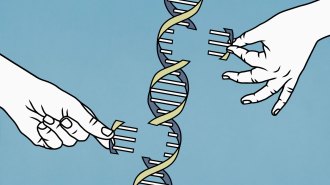 Genetics
Genetics50 years ago, scientists sequenced a gene for the first time
Within five decades, scientists went from sequencing a single gene to sequencing the entire human genome.
-
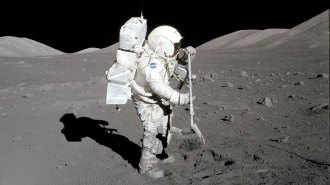 Space
SpaceHumans haven’t set foot on the moon in 50 years. That may soon change
In 1972, the era of crewed missions to the moon came to an end. Fifty years later, a new one has begun.
-
 Health & Medicine
Health & MedicineHow much water should you drink a day? It depends on several factors.
A study of more than 5,000 people in 23 countries finds that individual water need varies widely depending on physical and environmental factors.
-
 Physics
Physics50 years ago, physicists found the speed of light
In the 1970s, scientists set a new maximum speed limit for light. Fifty years later, they continue putting light through its paces.
By Nikk Ogasa -
 Health & Medicine
Health & Medicine50 years ago, a ‘cure’ for intoxication showed promise
In 1972, vitamin and chemical injections reduced the amount of time that rats fed alcohol spent drunk. The science has yet to pan out for people.
-
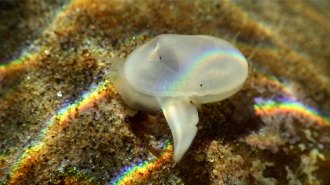 Animals
AnimalsA clam presumed extinct for 40,000 years has been found alive
The reappearance of living Cymatioa cooki clams places it among a group of back-from-the-dead creatures dubbed the Lazarus taxa.
-
 Archaeology
Archaeology50 years ago, Stonehenge’s purpose mystified scientists. It still does
In 1972, scientists thought Stonehenge may have been a calendar. Today, we still don’t know its purpose, but we have gained insight on its origin.
-
 Earth
Earth50 years ago, scientists found a new way to clean up oil spills
In the 1970s, researchers added chemicals to the list of oil spill cleanup methods. Soon, they may add microbes.
By Meghan Rosen -
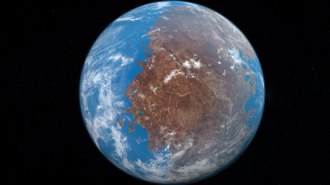 Earth
Earth50 years ago, scientists dug into Pangaea’s past lives
In 1972, scientists wondered whether Pangaea was Earth’s only supercontinent. Fifty years later, we know it wasn’t the first and it won’t be the last.
-
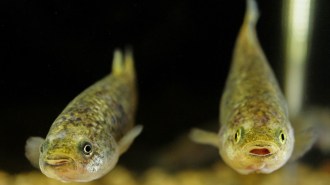 Animals
AnimalsAfter eons of isolation, these desert fish flub social cues
Pahrump poolfish flunked a fear test, but maybe they’re scared of other things.
By Susan Milius -
 Particle Physics
Particle Physics50 years ago, physicists got a whiff of what glues together protons
In 1972, particle smashups hinted at the gluon, which we now know not only holds together the innards of the proton, but also makes up more than a third of its mass.